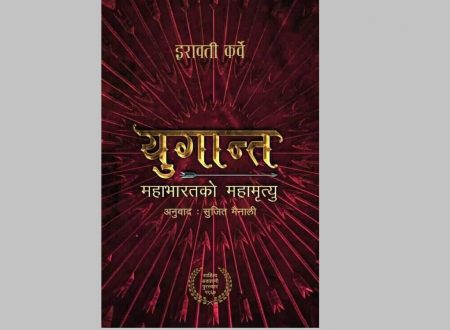According to biology, “Menstruation can be defined as the shedding of the inner wall of the uterus causing to let go partly blood and partly tissue from the vagina. It takes place every five days a month if fertilization in the uterus has not taken place.”
In Nepali Culture this completely natural phenomenon that occurs monthly in a female’s body showing that she is fertile is popularly termed as “नछुनी”- The One Who Cannot Be Touched. Here, when women menstruate they are believed to be untouchables.
It is taken as a sin for them to worship God, cook food, touch the water, and carry on with their daily chores when they are menstruating. Further, there is the banishment of women during these five days to a different shed outside their homes in the villages. The cowsheds in which they take shelter are filthy and unhygienic resulting in the deterioration of their health. This custom that is widely practiced is known as the Chhaupadi Pratha.
Though the new Civil Code of 2017 criminalizes this act, it is still seen prevailing in mostly the western districts of Nepal. Now, as the ill Practice of Chhaupadi has been brought into light through its criminalization, the stakeholders are alert and necessary data is also being collected. But, there is also a practice in which much light is still not shed yet. A few kilometers away from western Nepal, in the suburbs and urban areas, in the house of learned and employed; prevails a custom also in regards to menstruation which can be termed as the “Modern Chhaupadi”.
In most of the houses, we can see the young girls who have got their first menses spending a certain number of days in the dark without any contact with the male members of the family. The number of days varies from different castes to castes based upon their rituals.
After the completion of this ritual, there is usually a huge celebration marking the entrance of the girl into womanhood. This moment of joy after the days of isolation within four walls might be the only liberation allowed by menstruation because after that the vicious cycle of not going into the prayer room, not touching anything in the kitchen, and remaining in a room without changing the bedsheet for 5 days remains intact.
If menstruating, the women do not share their bed with anyone and neither do they eat in the common dining table. This is the reason why the bed sheets are supposedly NOT CHANGED as after the completion of menstruation the new sheet can be sat and slept upon by any other person. The same goes for the detainment of using common utensils and eating in the same dining table. Well the ritual of women not being touched or banishing them isn’t there but what about not touching or using any item touched by the menstruating women suggest? What does the prohibition of the entrance to the kitchen and prayer room suggest?
Well, it suggests that people who take menstruation as a taboo don’t only exist in a certain region of the country but it is present in almost the whole country either in an extreme and widely discussed level such as “Chhaupadi” or in a regular and ignored level such as “Modern Chhaupadi”.
Yes, these concerns of ill practices have been acknowledged by the law but what about the customs which are still at the root of any ritual? It is necessary to remove this thought of women being impure and untouchable during menstruation. For this, we all need to make menstruation as common as eating, sleeping, or any bodily function that is socially established as “Normal”. We can’t just close our eyes to the meager reflection of women being impure while they are menstruating and complement the government for criminalizing the extreme activities for the same ritual. There should be an effort from all of us towards not only abolishing certain practices but constructing a society where “menstruation” is just shedding of the uterus which is biologically normal and not a mark of “impurity” prohibiting women to do their regular chores.
-Brinda Bhattacharya







